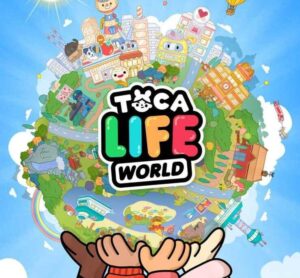Electronic Arts Goes Private: The $55 Billion Deal and the Looming $20 Billion Debt Burden
Popular Now
 Valorant
Valorant
 Call of Duty
Call of Duty
 Poppy Playtime
Poppy Playtime
 Black Myth: Wukong
Black Myth: Wukong
 Warframe
Warframe
 Among Us
Among Us
 R.E.P.O
R.E.P.O
 Fortnite
Fortnite
 Toca Boca World
Toca Boca World
 Sonic the Hedgehog™ Classic
Sonic the Hedgehog™ Classic
 Electronic Arts (EA), the global powerhouse behind franchises like EA Sports FC (formerly FIFA), Battlefield, and The Sims, has been successfully acquired and taken private in a landmark $55 billion deal. The consortium of investors leading the buyout includes the Saudi Arabian Public Investment Fund (PIF), private equity firm Silver Lake, and Jared Kushner’s Affinity Partners.
Electronic Arts (EA), the global powerhouse behind franchises like EA Sports FC (formerly FIFA), Battlefield, and The Sims, has been successfully acquired and taken private in a landmark $55 billion deal. The consortium of investors leading the buyout includes the Saudi Arabian Public Investment Fund (PIF), private equity firm Silver Lake, and Jared Kushner’s Affinity Partners.
While the acquisition itself is historic—representing one of the largest leveraged buyouts in corporate history—the financial structure has immediately ignited industry concern. The deal is notably being financed with a colossal **$20 billion loan**, reportedly provided by institutions like JPMorgan Chase. This debt load is exceptionally significant for a company that historically carried minimal net debt, and its repayment strategy now rests on a massive, high-risk gamble.
The EA Acquisition Generative AI Pivot: A “Huge Bet” on Future Profits
According to reports citing individuals involved in the transaction, the new owners are placing a “huge bet” on the aggressive deployment of Generative AI tools as the primary mechanism to service and ultimately repay the multi-billion dollar debt. The core of this strategy lies in achieving an unprecedented reduction in operational and development costs, thereby significantly boosting EA’s future profit margins.
The investors believe that AI-based efficiencies will be transformative, allowing the company to manage the substantial financing required for the leveraged buyout. This move aligns with EA’s public statements leading up to the acquisition, where CEO Andrew Wilson previously touted the technology, claiming that generative AI would make development processes “more efficient” and accelerate content creation—such as reducing the time needed to create virtual stadiums from months to mere weeks.
The Dual-Edged Sword: Cost Reduction and the Specter of Gaming Industry Layoffs AI
The pursuit of efficiency, especially under the pressure of a major debt obligation, almost universally signals an accelerated push towards automation. For the thousands of developers, artists, and supporting staff within Electronic Arts, this corporate pivot raises immediate and serious questions about job security. The explicit goal of using Generative AI Game Development Cost reduction is feared to translate directly into workforce consolidation, a trend already devastating parts of the gaming sector.
- Asset and Environment Creation: Generative AI can be used to automate the creation of backdrops, textures, and other art assets, potentially reducing the need for large teams of environment and asset artists.
- Voice Acting and Dialogue: The technology has the capacity to replace voice actors by generating new dialogue and adapting existing voice samples, a cost-saving measure that has already drawn significant controversy and union pushback across the entertainment industry.
- Automation of Quality Assurance: AI-driven playtesting and bug detection could reduce the necessity for extensive manual QA teams, accelerating the pipeline but eliminating crucial roles.
Veteran industry analysts have expressed deep skepticism over this reliance on a still-maturing technology to solve a financial problem of this magnitude. One former executive, while noting that going private would save some administrative costs, warned that the company’s financial standing, carrying a reported single-B or “junk” debt rating, places it in a dangerous position. The necessity to generate billions in revenue to cover high-interest repayments makes asset sales, studio closures, and mass job cuts a very real possibility if the promised AI efficiencies fail to materialize on the required timeline.
A High-Risk Debt Repayment Strategy That Redefines Game Development
The investment consortium’s strategy is a powerful illustration of how the financial sector views Generative AI: not just as a tool for innovation, but as a critical financial lever to extract value and manage high-leverage deals. By betting the repayment of a $20 billion loan on its success, the new owners of EA have effectively tied the future of one of the world’s largest video game publishers to the commercial viability and speed of AI integration.
This situation is being closely watched, as it could set a critical precedent for future acquisitions in the entertainment and technology industries. Should the strategy succeed, it will solidify the perception of Generative AI as an essential, debt-management tool. Should it fail, the consequences for Electronic Arts, its employees, and its iconic franchises could be catastrophic, proving that even a vast, profitable publisher can be destabilized by a massive debt load predicated on an uncertain technological future.
The next few years under the stewardship of the Electronic Arts PIF Silver Lake consortium will serve as a definitive stress test on the true cost-cutting power of artificial intelligence in the multi-billion dollar gaming sector.








